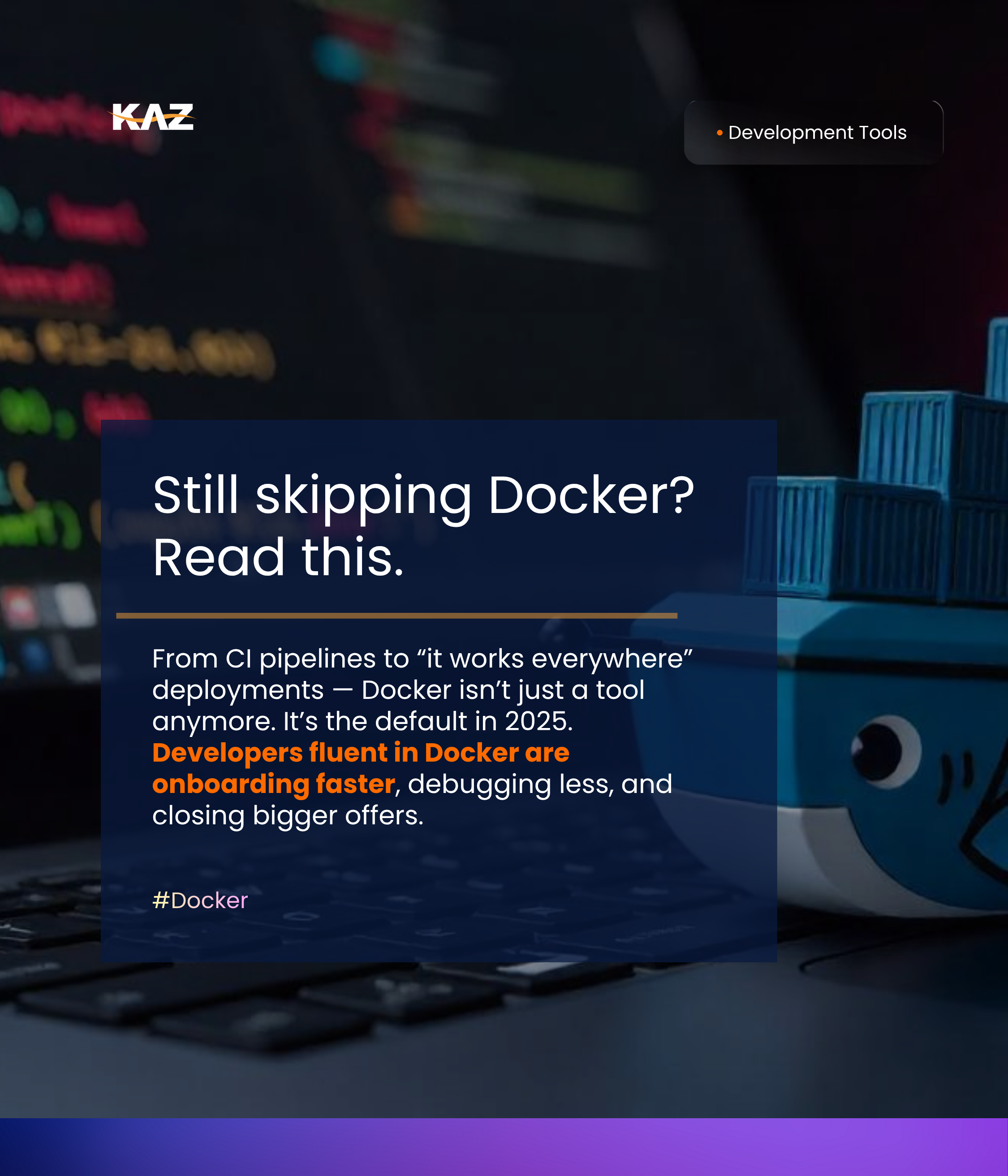Docker’s Not Optional in 2025
/Hiring managers expect it. Dev teams love it. And your next job might quietly demand it. Here’s why Docker is still shaping modern development in 2025.
Why Docker is still the must-know tool for developers in 2025. From backend builds to container orchestration, here’s why every dev is expected to “speak Docker.”
Docker is the new developer handshake
In 2025, most dev teams assume you know Docker — before they even talk to you. It’s not a “nice to have” anymore. From junior backend roles to senior fullstack jobs, Docker appears in over 70% of developer job descriptions. Why? Because modern workflows demand containerization — whether you’re spinning up APIs, managing services, or shipping code that “just works” on any machine. In Kaz Software’s dev culture, Docker is one of the first tools taught after git — it speeds up onboarding, aligns environments, and solves the “it works on my machine” problem once and for all. If you don’t speak Docker yet, the 2025 hiring world will assume you're not ready.
From local dev to global scale — in one Dockerfile
Docker’s strength has always been its consistency — and in 2025, that’s everything. Startups use it to test locally with exact prod configs. Enterprises use it to ship microservices to Kubernetes clusters. Everyone in between uses it to build CI/CD pipelines that don’t break. A 2025 StackOverflow developer trend report showed over 78% of professional developers use Docker weekly. Tools like Docker Compose, Docker Desktop, and Dev Environments now make it easier than ever to spin up isolated services, test against real dependencies, and ship confidently. And for Kaz Software engineers — it’s a quiet superpower. One Dockerfile can take your local app global.
Docker fluency = career confidence
Docker is more than tech — it's a signal. Knowing Docker shows employers you understand environments, containers, and deployment realities. It tells them you write production-ready code. In 2025, interviews are asking less “What’s Docker?” and more “How do you use it?” Recruiters use Docker knowledge as a tiebreaker in tight hiring rounds. And with DevOps, backend, and cloud-native roles exploding, Docker isn’t fading — it’s evolving with new tooling, integrations (like Podman and nerdctl), and cloud-native stacks. At Kaz, we see Docker as a key part of developer maturity — especially for devs working across frontend/backend splits, testing, or release automation.





